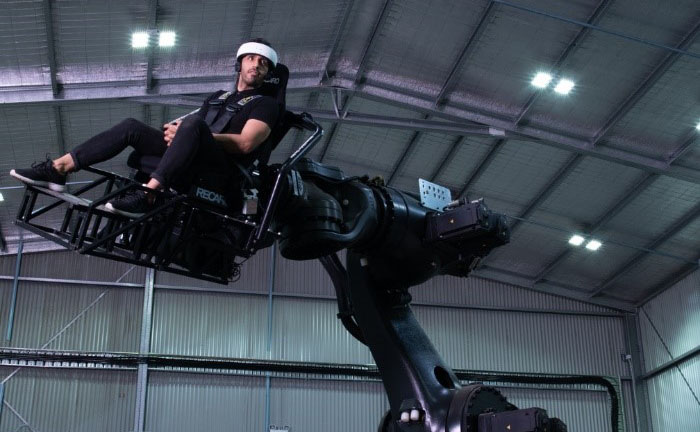A young researcher at the Institute for Intelligent Systems Research and Innovation, Deakin University received the Australian Research Council Discovery Early Career Researcher Award (DECRA) 2021 for establishing sovereign capabilities in motion simulation for Australian communities and industry.
Dr. Houshyar Asadi was awarded the prestigious Australian Research Council Discovery Early Career Researcher Award (DECRA) in 2021 for designing and developing High-Fidelity Motion Simulator using Sickness-Free Motion Cueing Algorithms.
His research aims to revolutionise the use of state-of-the-art motion simulators for driver/pilot training, user behaviour and performance evaluation and safety purposes. The outcome has immense social and emotional impact pertaining to reducing road crashes in Australia and minimising the associated economic cost ($27 billion per annum). In addition, the research has great benefits for advanced manufacturing in the automotive sector. Currently, vehicle manufacturers evaluate new vehicle designs using real prototypes during various R&D stages, which makes the process of new vehicle design and performance evaluation highly expensive and time-consuming, not to mention the high risk for human drivers in testing prototype vehicles. These drawbacks can be greatly overcome through the use of motion simulators for virtual vehicle prototyping, test and evaluation not only in Australia but also world-wide.

The main novelty of Dr Asadi’s research centres on human-centric motion cueing algorithms (MCAs). Specifically, MCAs are the main element in a motion simulator that regenerates realistic driving/flying motion sensation of real land/air vehicles for the users, while respecting the unavoidable physical limitations of the motion simulator. Despite widespread applications, the existing motion simulators fail to deliver the most accurate human sensation to the users. This failure is mainly attributable to the inefficiency and inflexibility of the MCAs used in the existing simulators, leading to simulator sickness and user discomfort.
Indeed, simulator sickness is a common problem for simulator users. It occurs because of unrealistic simulator motion and a mismatch between the visual cues perceived by the user’s eyes and motion cues perceived by the user’s vestibular system. Low fidelity and simulator sickness are key drawbacks of existing simulators which demotivate participants and therefore negatively affect outcomes of training, user behaviour analysis and virtual prototyping.
In this ARC DECRA project, these key deficiencies of existing driving and flight simulators will be overcome by developing novel human perception-based MCAs and leveraging advanced artificial intelligence techniques and optimal control theory. The novel MCAs are able to take into account human perception related factors, and will significantly increase simulator motion fidelity and eliminate motion sickness. It is envisaged that the research outcome will bring immense benefits to Australian research communities and industries, whereby low-cost, safe, and high-fidelity simulators can be widely used for training, performance evaluation and virtual prototyping.
Want to know more? Email our team to learn about IISRI's leading research capabilities.

